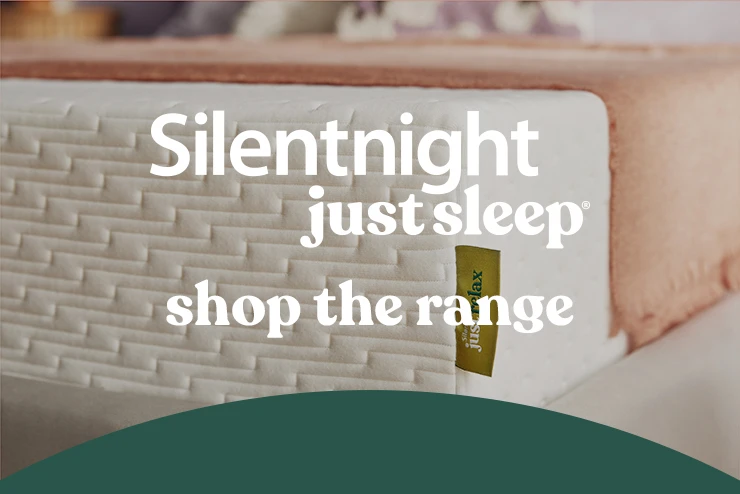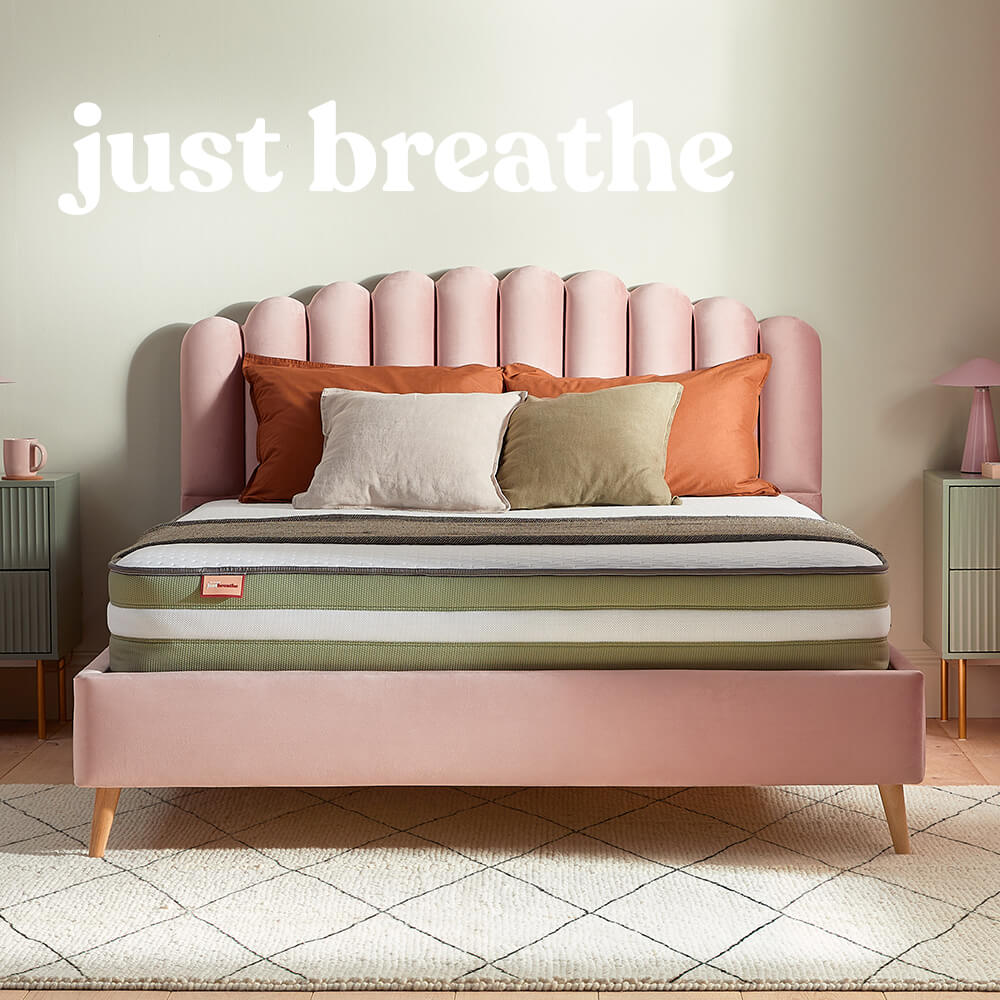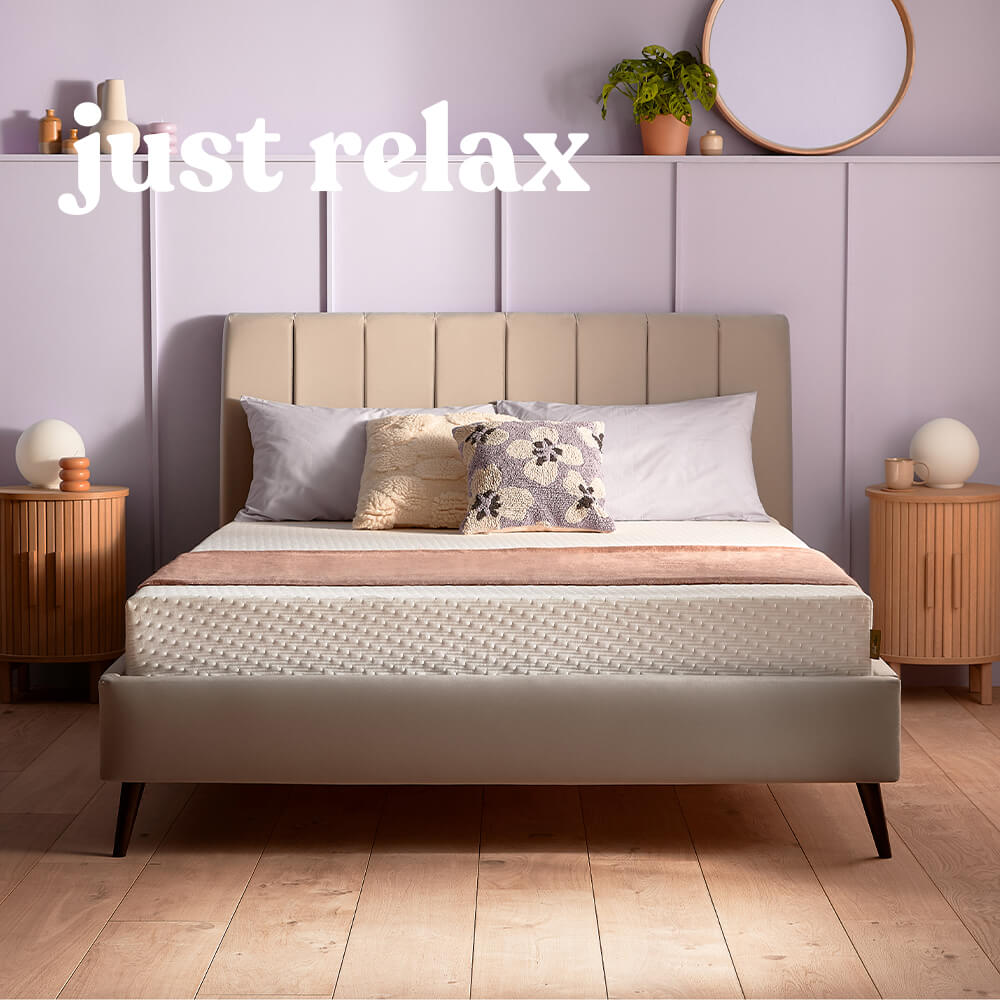fall in love with sleep - tips to beat insomnia

We’ve all had those nights spent wide awake, tossing and turning, and sometimes it feels like the harder you try to fall asleep, the more challenging it becomes. An occasional sleepless night might not be a big issue, but when difficulties falling or staying asleep start impacting your daily life, it may be a sign of insomnia. Insomnia can have serious effects on both physical and mental health. If this sounds familiar, read on to learn about ways to manage insomnia and find restful sleep once again.
what is insomnia?
Insomnia is a common sleep disorder that makes it hard to fall asleep, stay asleep, or get restful sleep. It affects both your physical and mental wellbeing, often leading to fatigue, irritability, and lack of focus during the day. In the UK, insomnia affects a significant portion of adults, with research showing that about a third of adults experience sleep issues at least once a week, and around 6–10% of adults meet the criteria for insomnia disorder.1
Insomnia can be short-term, often linked to temporary stress or changes in your environment, lasting less than three months. Long-term, or chronic insomnia, persists for three months or more and may be associated with other health conditions.2 Adults typically need 7 to 9 hours of sleep per night, but even with enough sleep time, those with insomnia may still feel unrested.
insomnia symptoms
You may be experiencing insomnia if you regularly:
Struggle to fall asleep or wake up several times during the night
Lie awake for long periods at night, or wake up too early and can’t fall back asleep
Still feel tired upon waking, with daytime drowsiness and difficulty concentrating
In addition to sleep disruption, insomnia symptoms may also include mood swings, irritability, and issues with memory and focus, which can all interfere with daily activities and your quality of life.
what causes insomnia?
Insomnia can be caused by lots of things, ranging from lifestyle habits to medical conditions. Below are common causes:
Mental Health Conditions: Stress, anxiety and depression are major contributors to insomnia, with studies noting that around half of individuals with diagnosed insomnia have a related psychiatric disorder.3
Hormonal Changes: Women are 1.5–2 times more likely to experience insomnia, with over a quarter of women reporting insomnia during perimenopause.4 Learn more about menopause and sleep by reading our blog.
Environmental Factors: A noisy or uncomfortable sleeping environment, an unsuitable room temperature, or irregular sleeping hours can all contribute to insomnia.
Medical Conditions: Conditions like chronic pain, respiratory disorders and neurological conditions can interfere with sleep patterns.
Sleep Disorders: Conditions such as obstructive sleep apnoea (OSA) and restless legs syndrome (RLS) are common in people with insomnia, affecting sleep quality and duration. Studies show that up to 30–40% of people with insomnia may have OSA and around 30–50% of those with OSA experience insomnia symptoms.5
Addressing any underlying health issues or adjusting your sleep environment may improve insomnia symptoms without the need for extensive treatment.
how can you treat insomnia?
While there’s no universal solution, there are a variety of treatments that can help manage insomnia. In the UK, the NHS and the National Institute for Health and Care Excellence (NICE) recommend lifestyle adjustments, cognitive-behavioural therapy (CBT), and medication in some cases. CBT is often preferred as it addresses the thoughts and behaviours that disrupt sleep, while medications are typically considered for short-term relief.
set yourself up for a good night’s sleep
For many people, simple adjustments to their sleep routines can make a big difference. Here are some key tips to help set yourself up for a restful night.
regular sleep schedule
Going to bed and waking up at the same time every day, including weekends, helps your body establish a steady sleep pattern. A regular schedule also supports your body’s internal clock, making it easier to wind down each night.
Melatonin, a hormone your body produces in response to darkness, helps regulate your sleep-wake cycle, while adenosine – a chemical that builds up in the brain during waking hours – promotes sleepiness. When you’re sleep-deprived, adenosine levels remain high in the brain, making it harder to stay awake during the day.
the best sleep environment
Your sleep environment can play a significant role in your ability to fall and stay asleep. Here’s how to make your bedroom more sleep-friendly:
Adjust Room Temperature: Keep the room cool, ideally between 16-18°C, which research indicates is ideal for healthy sleep.6
Invest in Quality Bedding: Choose a supportive mattress and complimentary pillows that cater to your sleeping position, as discomfort can easily disrupt your sleep cycle.
Block Out Light and Noise: Use blackout curtains or an eye mask and consider earplugs or white noise machines if you live in a noisy area.
By making these small adjustments, you may find falling asleep and staying asleep easier, which can greatly improve overall sleep quality.
prioritising physical health
Caring for your physical health can also contribute to better sleep. Regular exercise, in particular, has been shown to support restful sleep. Long-term, moderate exercise can also reduce the time it takes to fall asleep while increasing sleep quality. Aim for at least 30 minutes of exercise most days but try not to exercise too close to bedtime as it may raise your core body temperature and make it harder to wind down.7
Limiting alcohol and caffeine intake is another key factor. Both substances interfere with deep, restorative sleep. Alcohol can hinder your sleep, making it lighter and more disrupted, while caffeine blocks adenosine, delaying sleep onset and prolonging wakefulness.
pre-sleep relaxation techniques
Developing a pre-sleep relaxation routine can signal to your body that it’s time to wind down. Here are some simple techniques to try:
Warm Bath: A warm bath around 90 minutes before bed can relax your muscles and release tension. Avoid bathing right before bed as it may prevent the drop in body temperature needed for sleep.
Limit Screen Time: Blue light from screens can delay melatonin release, making it harder to fall asleep. Instead, choose a relaxing activity like reading or listening to calming music.
Meditate: A few minutes of meditation can help clear your mind, reduce stress, and prepare you for sleep. Start with simple breathing exercises and gradually build up your meditation time.
Journaling: If worries are keeping you awake, spend a few minutes journaling to offload your thoughts. This mental release can make it easier to drift off.
Experiment with different relaxation methods to find what works best for you. Ultimately, a steady pre-sleep routine can not only help you fall asleep faster but also improve your overall sleep quality.
don’t panic if you don’t fall asleep instantly
Trying to fall asleep immediately when you lie down can lead to stress, which only makes it harder to drift off. Start winding down at least an hour before bed by dimming lights and relaxing. Avoid clock-watching as checking the time can increase anxiety about not sleeping. Place your clock or phone face down if you’re tempted to look, allowing yourself to relax and let sleep come naturally.
For more positive sleep routine ideas, read our blog on how to create a night-time routine for better sleep.
when to see a doctor
If self-help methods aren’t effective, consider consulting your GP. They may refer you for CBT for insomnia, which addresses sleep-disrupting thoughts and behaviours. This can be delivered either face-to-face with a therapist or through online self-help programmes.
Insomnia can be challenging, but with a few lifestyle adjustments and self-help strategies, many people find relief. From setting up a regular sleep schedule and creating a restful environment to prioritising physical health and practising relaxation techniques, these steps can support your journey towards better sleep. If you continue to struggle, don’t hesitate to seek medical advice – treatments like CBT are available and can help you restore a healthy sleep routine.
sources and further reading
https://www.nhs.uk/conditions/insomnia/ https://cks.nice.org.uk/topics/insomnia/background-information/prevalence/


























